Mount Elgon National park is situated at the eastern part of Uganda. It covers an area of 1,121km2. At the top of the mountain is the largest volcanic caldera in the world and is a massive solitary volcanic mountain on the border of eastern Uganda and western Kenya. Its vast form, 8km in diameter, rises 3000m above the surrounding plains. Its mountainous regional landscape and cool heights offers respite for – humans from the hot plains below and its higher altitude provide refuge for flora and fauna. Mount Elgon National Park is home to over 300 species of birds, including the endangered Lammergeier. Small antelopes, forest monkeys, elephants and buffalos also live on the mountain side. The higher slopes are protected by national parks in Uganda and Kenya, creating an extensive trans-boundary conservation area which has been declared a UNESCO Man and Biosphere Reserve.
LOCAL PEOPLE
Mt Elgon is home to two tribes, the Bagisu, and the Sabiny living at the forest margins. Both tribes practice circumcision but the Bagisu people on the southern slopes of Mount Elgon are known for their biannual Imbalu ceremony in which boys are initiated into manhood. The Karamojong, who live between Mount Elgon and Kidepo Valley, are pastoralists. The Bagisu, also known as the Bamasaaba, consider Mount Elgon to be the embodiment of their founding father Masaba and refer to the mountain by this name.
ATTRACTIONS
Forest Exploration Centre
At Kapkwai, 13kms from Sipi town doubles as an educational centre for schools and the trailhead for climbers using the Sipi trail to the caldera, three 3-7kms circuits run through the surrounding regenerating forest, where you can visit caves, waterfalls, escarpments and viewpoints; and observe birds and primates.
Caves
Mount Elgon’s slopes are riddled with caves left by moving lava and erosion of soft volcanic deposits. The most accessible are Kapkwai Caver near the Forest Exploration Centre, and Khaukha Cave on Wanale Ridge. Historically, such features acted as shelters for locals and their livestock; later on they provided manure in the form of bat droppings.
Jackson’s Peak
This peak stands at 4,050m and is a natural pool with shallow waters. It lies in the shadow of the 4,165m high Jackson’s peak a free-standing volcanic plug rising from the western flank of the mountain.
The peaks and the caldera
Mount Elgon’s highest peaks are formed by high points around a jagged rim enclosing one of the world’s largest calderas, at 40km long and 8km wide. The tallest peak is the 4,521m Wagagai, followed by Sudek (4,503m), Koitobos (4,222m) and Mubiyi (4,210m).
Vegetation
Mount Elgon’s vegetation is banded into broad zones whose characteristics are dictated by altitude and rainfall. The lower mountain slopes are covered with dense forest and regenerating forests, hung with vine-like lianas, epiphytes and lichens. The floor is covered with a carpet of ferns, orchids and flowering plants. Common tree species encountered in the tropical montane forest (1,500-2,500m asl) are; Elgon olive welwitchi prunus africana, Elgon teak, Podocarpus, Cedar, Cordia, Neoboutania, allophyllus tombea and Aningeria adolfi-friedericii. The zone changes to mixed bamboo at 2,500-5000m. The bamboo merges into open woodland dominated by hagenia abyssinica and African rosewood interspersed with hypericum a giant form of St. John’s wort.
Nkokenieru Ridge and Wanale
Nkokenieru Ridge is a distinctive finger of forest extending outwards from the main massif of Mount Elgon. It lies at an elevation of 2,347m and covers a 25km long tongue of lava that flowed out of the side of the volcano after the cone collapsed to block the main vent. Nkokenieru Ridge culminates at the superb Wanale Cliffs which tower above Mbale town the seasonal Nabuyonga and Namatyo Waterfalls are located here. A trail at this western end of the ridge leads you to Khaukha Cave where petrified wood can be found. This ridge also offers ground for those interested in paragliding over Mbale town.
PARK ACTIVITIES
Mountain Climbing, Mountain Biking, Birding, Hiking, Nature Walks, Rock Climbing, Sport Fishing, Cultural Encounters
ACCESSIBILITY
By Roads
Mount Elgon National Park lies 235km east of Kampala – Through Jinja to Mbale town at the western base of Mount Elgon, before climbing to Kapchorwa on the mountain’s north-western flank. Dirt roads lead off the Mbale-Kapchorwa road to reach the various trail heads.
ACCOMMODATION
A range of accommodation facilities catering for both up-markets, medium range and budget visitors are available. It is advisable to book well in advance.
SPECIALIZED TOUR OPERATORS
- Victoria Safaris Ltd
- House of Uganda Safaris
- Maranatha Tours and Travel
- Mukwano Safaris
- Home to Africa Tours and Travel Company
- Churchill Safaris
- Great Lakes Safaris Limited
- Matoke Tours
- Kjong Uganda Safaris

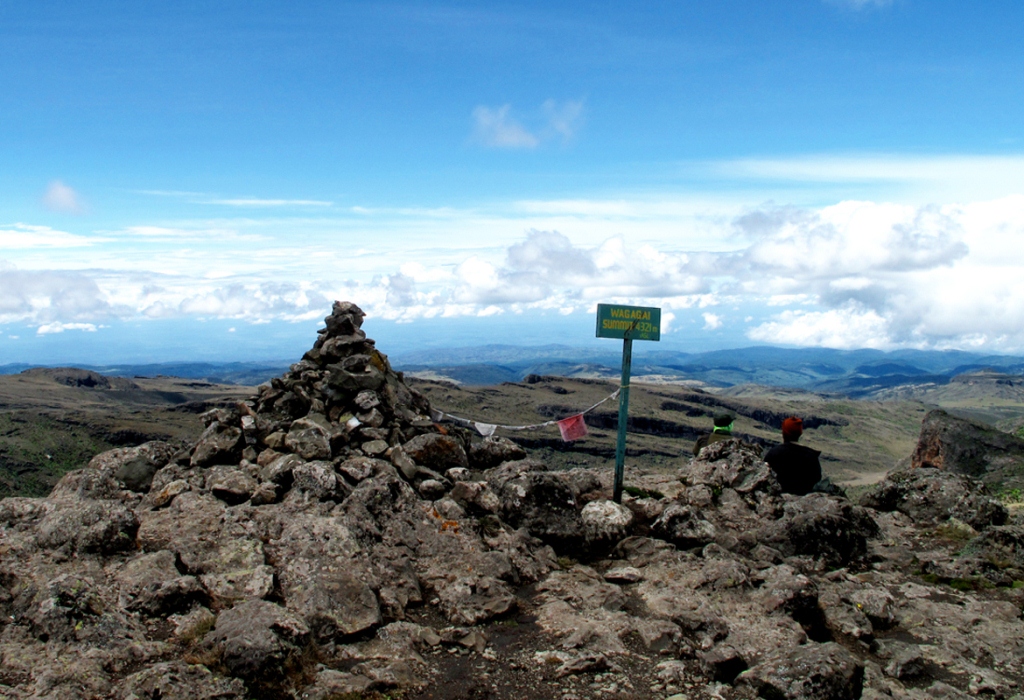

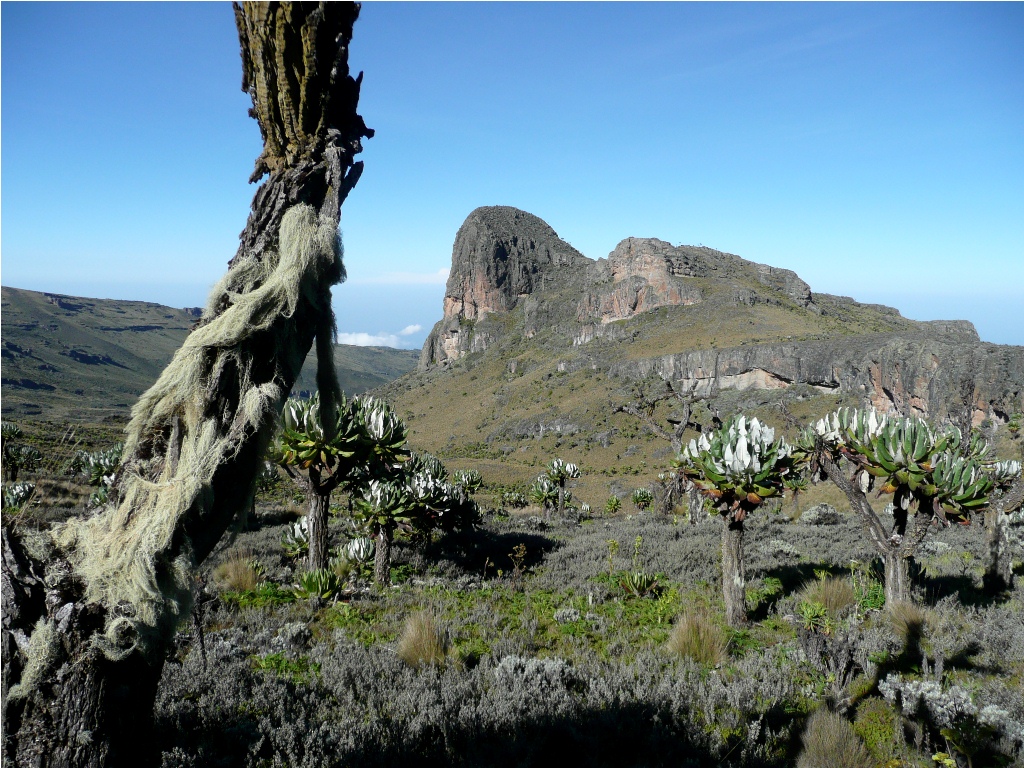



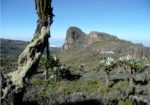
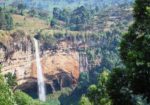


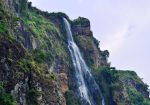
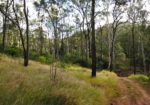





3 Comment
Mount Elgon; The World’s Largest Mountain Caldera | Uganda Tourism Center, 2018-11-06 at 9:49 AM
[…] leaving them behind, but the fact that I have very long legs and had hiked seven mountains prior to Mount Elgon, meant my pace and fitness levels were quite good. It was interesting to know later on that […]
EIGHT SUMMIT POINTS IN A YEAR | Uganda Tourism Center, 2018-09-03 at 3:08 AM
[…] soon as I was done with wearing my boots and ready to head out to the Wagagai Peak (the summit of Mt.Elgon), which stands at 4,321m; it dawned on me that this was going to be my 8th summit point in a year. […]
Geomad991, Cardiff, 2016-08-28 at 8:31 AM
Came as a group of friends and went with a guide along one of the routes. The climb was really taxing, especially due to the heat. But once we got there the views made up for it! Absolutely stunning! On the way down we saw several monkeys in the trees which we found pretty cool. So beautiful and would do it all again in a heartbeat!